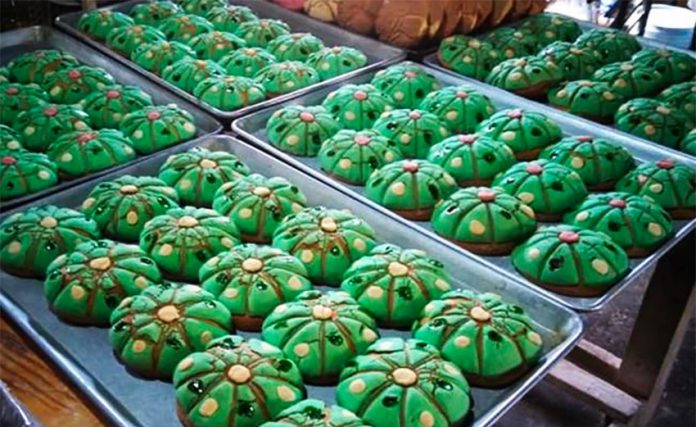If you’re a fan of Mexican pastry, you might want to try San Luis Potosí’s newly famous peyoconchas, so-named because they are decorated in blue-green sugar to resemble a peyote button, the crown of the peyote cactus, one of the tourist attractions of the region.
First created by La Migaja artisanal bakery in Real de Catorce, the curiously colored bread has piqued the interest of many a traveler eager to give it a try, although some may be disappointed to learn that the pastry’s active ingredients are flour and sugar, not hallucinogens.
Since the peyoconcha first began attracting attention in January, they have become so popular that bakeries all over town sell the sweet treat.
A Magical Town, or Pueblo Mágico, Real de Catorce is an old silver mining town known for its quaint, cobblestone streets, abandoned mine shafts and unique spiritual energy. Catholics flock to the reportedly miraculous image of Saint Francis in the town’s church, and pilgrims of a different type are drawn to the abundance of peyote, which contains the hallucinogen mescaline.
Indigenous Huichol people from Nayarit, Durango, Jalisco and Zacatecas travel to Real every spring to visit a ceremonial ancestral site called Cerro Quemado, and to harvest peyote, the cactus they use in rituals. Its hallucinogenic properties are thought to be a gateway to religious deities revered by their religion.
Tourists from all over the world seeking a mystical experience are also drawn to the mountainous town, although “peyote tourists” are prohibited from picking or possessing the peyote cactus. The sacred plant is exclusively reserved for the Huichol.
At least now visitors can settle for a 10-peso peyote pastry during their trip, and tourists are snapping them up by the box full.
Source: El Universal (sp)
